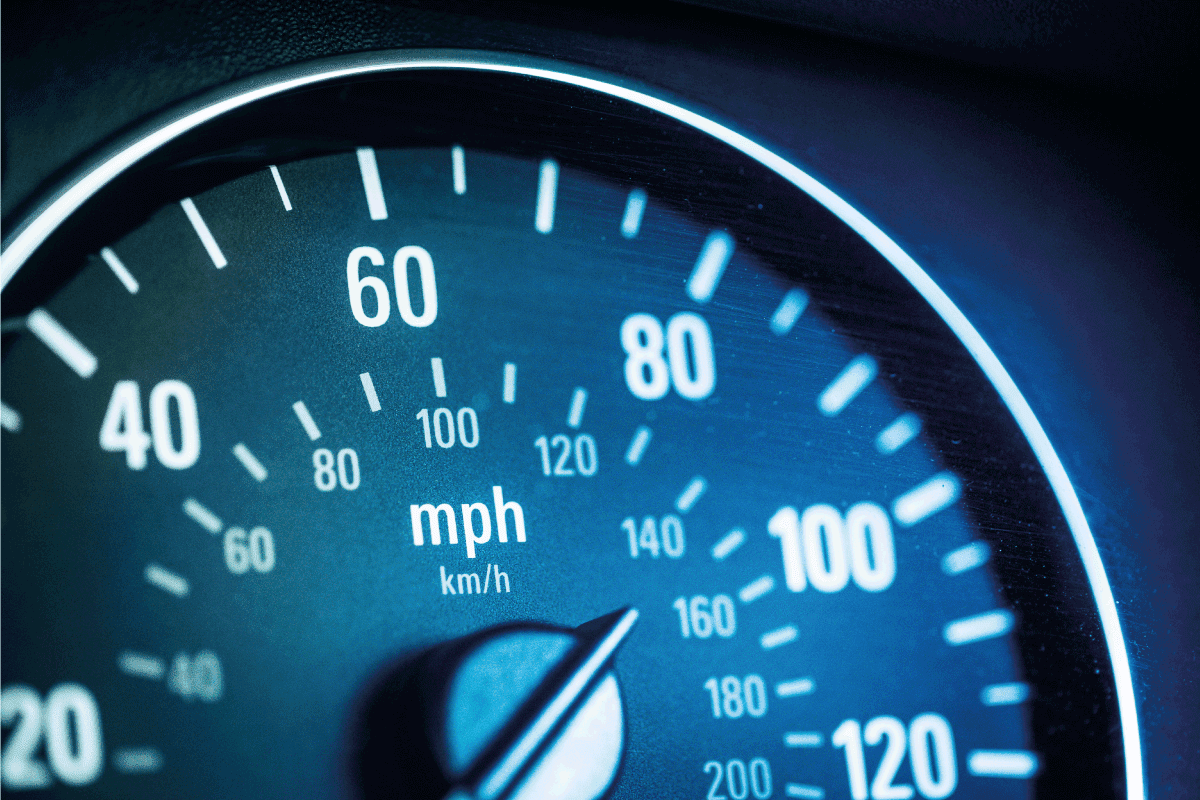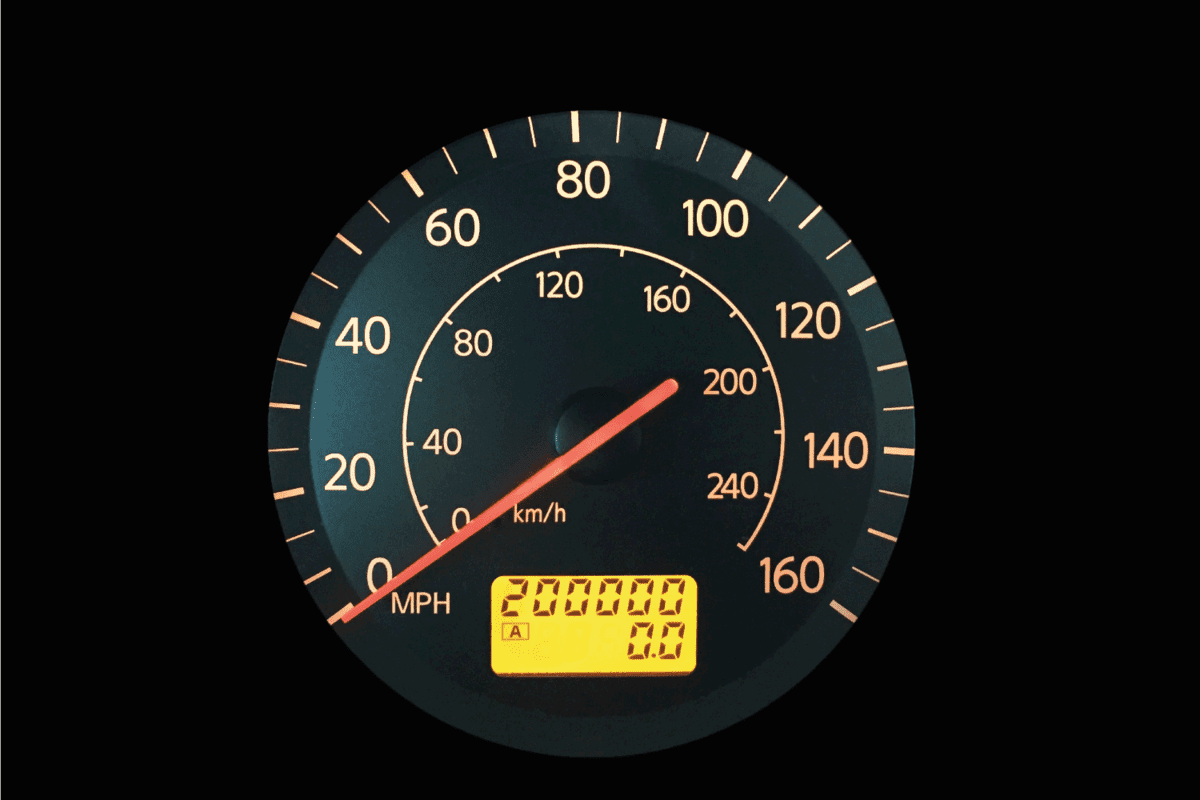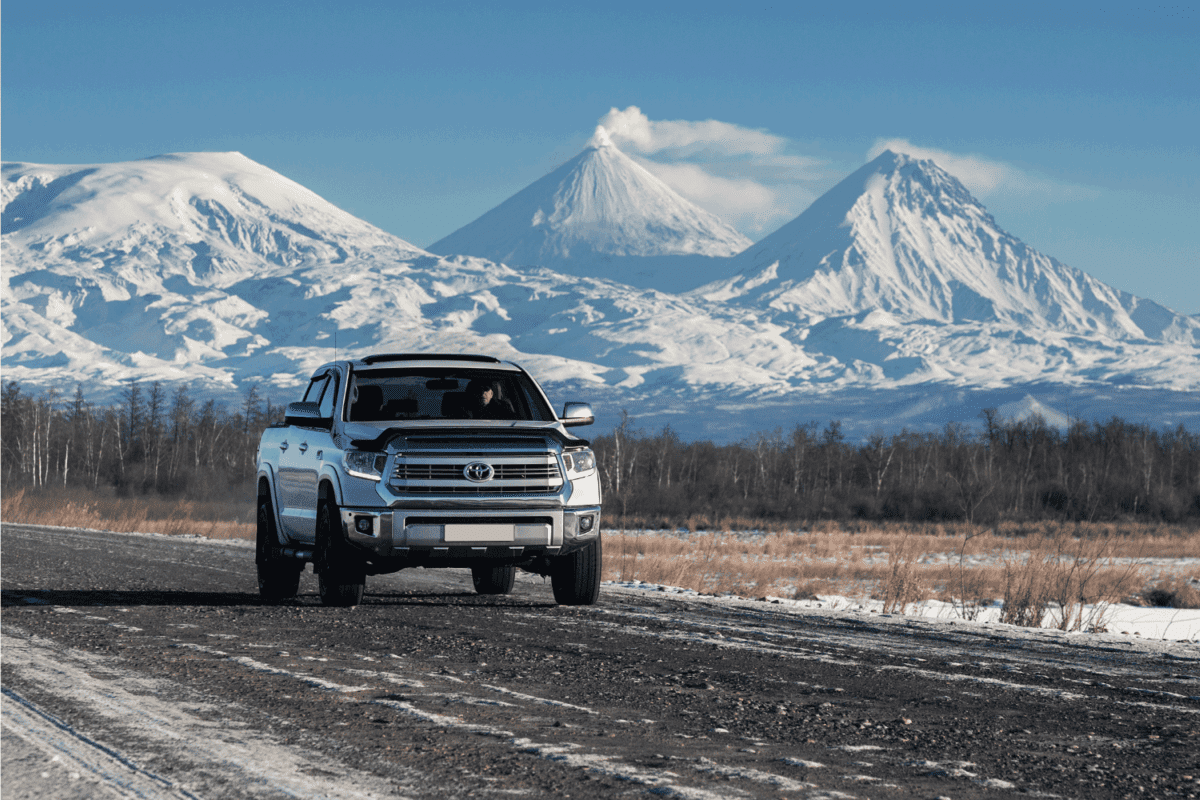When you're driving a Toyota Tundra, and it doesn't accelerate when you step on the gas pedal, there are many possible reasons why this could be happening. It can be frustrating and worrisome to determine what could be wrong. So we have researched on your behalf to help diagnose why your Tundra isn't accelerating.
The most common cause is a faulty gas pedal or accelerator cable. Other causes include low transmission fluid levels, air in the brake lines, or a defective fuel pump. Also, problems could be a dying battery or, worse, a bad transmission. The best thing to do is take your Tundra to a certified mechanic right away.
As you can see, several things could be causing your Toyota Tundra not to accelerate. That's why in this article, we will discuss each possibility and the warning signs of these issues. In addition, we will discuss the Tundra's transmission and if it is susceptible to transmission problems, so keep reading!

Toyota Tundra Not Accelerating—What Could Be Wrong?
If your Toyota Tundra is not accelerating, you need to determine precisely what the problem might be. For example, if it's an electronic issue, there could be a shortage in the system that needs to be found and repaired quickly so that other parts of your vehicle do not get damaged.
You can also check if any lights are flashing on your dashboard to indicate the problem. But, of course, it could also be something completely different. So let's take a look at the possible reasons why your Toyota Tundra isn't accelerating.
Bad Transmission
If your Tundra is not accelerating, it could be due to a bad transmission. If this is the case, you should notice many warning signs before your Toyota's powertrain fails.
For example, if your truck shakes or vibrates while driving at lower speeds (between 20-40 mph), sputters when starting from a standstill, or it jerks forward when shifting to "Drive" from "Reverse." If you notice any of these signs, then it's time for your Toyota Tundra's transmission fluid and filter service as soon as possible.
Low Transmission Fluid Levels
If you check the levels of your transmission now and they are low, then that's also another indication of a possible problem with your Toyota Tundra. There are many warning signs to look out for if you suspect the transmission fluid levels in your truck need changing.
For example, you'll feel it when shifting gears as there will be a noticeable clunk or shift shock and grinding sounds from under the hood at different speeds.
If you notice any of these problems with your Tundra, then it's time to get the transmission fluid and filter services on all Toyota models done as soon as possible.
Air in Brake Lines/Clutch Fluid Leakage
If there is air in your brake lines or hydraulic clutch system, this could also be why your Toyota Tundra is not accelerating. There are many indicators that you have this issue with your car, so it's best to take a look under the hood and check for any indications of fluid leaks or brake problems right away.
For example, you'll notice low clutch fluid levels if they dry up completely, feel bumps when engaging the clutch pedal, or your brake pedal sinks to the floor.
Low Battery
If there's an issue with your battery, this will also cause issues for your Toyota Tundra accelerating. You'll know if your car is not starting because of a low charge in its battery by noticing that all of the dashboard lights flicker or flash. If this happens, then it means that there aren't any issues with the alternator, and your battery needs charging as soon as possible!
Faulty Fuel Pump
The fuel pump is another cause for your Toyota Tundra not accelerating. This can be expensive to repair, so if you notice that the car's performance has reduced significantly or stalls when driving, this could also be why.
You'll know if there are any issues with your fuel system by checking that all of the warning lights on your dashboard are functioning correctly. If they aren't, then the fuel pump could be faulty, and you should also check for any signs of leaks around your gas tank!
Faulty Throttle Actuator
If there is a problem with your throttle actuator or position sensor, this will cause issues with acceleration. You'll know if you have this problem when your Tundra doesn't respond quickly to acceleration or is sluggish. You'll also notice the engine racing when it should be at idle, and there will probably be a check engine light on as well!
If any of these signs are present in your car, then get them serviced right away before getting stuck somewhere again!

Do Toyota Tundras have transmission problems?
According to Olathe Toyota, the Tundra has been known to have transmission problems since 2007. Consumers have reported shifting issues from time to time.
If this is happening to your Tundra, be sure to check the transmission fluid levels. This could be a simple fix to get your Tundra transmission working correctly. If that doesn't work, take it to a mechanic to have it looked at.
How long does a transmission last on a Toyota Tundra?
Transmissions on any vehicle will have different lifespans. Several factors go into the lifespan of a transmission. For the Tundra, it will depend on how it is used and treated. For example, if you use your Tundra frequently for towing, this can cause more wear and tear on the transmission than one used for daily driving.
Nonetheless, Toyota of Easley and Motor and Wheels state that the transmission on a Tundra can last anywhere between 100,000 and 200,000 miles. However, if you are looking to maximize the life of your Tundra's information, make sure that it is appropriately serviced.
Can a transmission go out without warning?
Transmissions can go out without warning. Several things could cause this, such as incorrect transmission fluid levels or a recent, significant issue with your car, and it still has its problems. If either of these is happening to your Tundra, then be sure to look into getting it checked out by a mechanic before it is too late.
You could do several things to minimize the risk of a total Tundra transmission failure, such as keeping up with all regular maintenance and not pushing the car past its limits. It's also essential for everyone who drives a vehicle to know when to stop and get it checked out by a mechanic if they notice any abnormalities.
How many miles will a Tundra last?
Various sources and consumers give different statements on how long they believe a Tundra will last. These sources, such as Motor and Wheels, and MotorBiscuit state that the Tundra can last anywhere between 200,000 and 300,000 miles.
Then there are some reports from OffRoadable consumer reports that they have reached a million miles on their Tundra. That is hard to believe, but 200,000 and 300,000 are realistic if the truck is maintained. Toyota makes one of the most reliable vehicles on the market, and when maintained properly, they can last you for several years.

What is high mileage for a Tundra?
High mileage depends on how the vehicle was taken care of and maintained. However, typically the 100,000-mile mark is when you start seeing parts breaking and needing replacing. In addition, parts such as fuel pumps, alternators, brakes, and even transmission issues arise after 100,000 miles.
There isn't a specific mileage that you should keep your Tundra under. However, if it is in excellent shape and the engine has been properly maintained, then there's no reason why you couldn't put a lot of miles on it!
However, if you're looking for a car with high mileage, make sure to consider what kind of condition it's in. For example, if you're looking to get a Tundra with high mileage, then be sure that it has been well maintained and serviced regularly, so your car runs smoothly for many years!
Always take a look at a CarFax before purchasing a used vehicle. The CarFax will give you insight into how the vehicle was treated. This includes maintenance reports, accidents, the number of previous owners, and more. If you are buying for a dealer, they should offer a CarFax report for free.

Final Thoughts
Overall, the Toyota Tundra is a popular vehicle, and for a good reason. It is reliable, robust, and comfortable to drive. However, like any other vehicle, issues might arise, such as it not accelerating. If this happens to your Tundra, then be sure to contact a certified mechanic that you trust. They will be able to diagnose it and give you a price quote on the repair.
If you enjoyed this article, you might also like:
Taking Your Toyota Tundra Off-Road? Here's What You Need To Know
Does My Truck Have Traction Control?
What Pickup Trucks Can Tow 10,000 LBS?
Ever had transmission issues with your Toyota Tundra? Let us know what year it was below!
